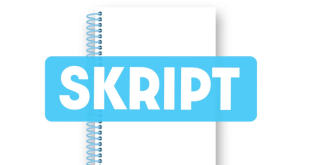Access to education is fundamental to personal and clever hcps login societal growth. In recent years, there has been an increasing push to make education more accessible and equitable across the United States. This article explores innovative approaches to providing free education, highlighting key strategies that are making a significant difference.
Table of Contents:
- Introduction
- [H2] The Importance of Free Education
- [H2] Government Initiatives for Free Education
- [H2] Role of Technology in Free Education
- [H2] Nonprofit Organizations Making Education Accessible
- [H2] Community-Based Educational Programs
- [H2] Challenges in Delivering Free Education
- [H2] The Future of Free Education in the USA
The Importance of Free Education
Free education is essential for creating a fair society where everyone has the opportunity to learn, grow, and contribute. Education empowers individuals with knowledge, skills, and values that foster economic growth and social cohesion. When education is free, it removes financial barriers, allowing students from diverse backgrounds to access opportunities they might otherwise miss.
Enhancing Equality Through Education
Free education plays a pivotal role in promoting equality. By providing everyone with access to learning resources, it levels the playing field and gives individuals from all walks of life the chance to succeed. Moreover, free education can help bridge gaps in society, fostering greater understanding and reducing inequality.
Government Initiatives for Free Education
Across the USA, various government initiatives aim to make education accessible to all. These programs often focus on primary and secondary education, but there are also movements to extend free access to higher education.
Public Schools and State-Funded Programs
Public schools are the cornerstone of free education in the United States. Funded through taxes, public schools provide K-12 education without cost to families. Additionally, some states have introduced tuition-free community college programs for eligible residents, allowing students to gain valuable skills for the workforce.
Federal Funding for Free Education
Federal grants and funding programs, such as the Pell Grant, help make education more affordable. These initiatives support low-income families and provide financial aid for higher education, furthering the mission of accessible learning.
Role of Technology in Free Education
Technology has revolutionized how education is delivered, especially in terms of accessibility. Online learning platforms, digital resources, and remote teaching methods have made it easier to reach students in all locations.
[H3] Online Courses and Open Educational Resources
Online courses have made it possible for people to access quality education from their homes. Platforms like Khan Academy, Coursera, and edX offer free courses on a wide range of subjects. Open educational resources (OER) provide free textbooks and learning materials, further supporting self-directed learning.
Virtual Classrooms and Remote Learning
Virtual classrooms allow teachers and students to connect remotely, which is especially beneficial for those in rural or underserved areas. Remote learning can expand access to education, breaking down geographic barriers.
Nonprofit Organizations Making Education Accessible
Nonprofit organizations play a significant role in providing free education. These organizations often focus on underserved communities, offering programs that might not be available in public schools.
Supporting Underprivileged Students
Nonprofits such as Teach For America and Girls Who Code work to improve access to education by targeting specific needs. These organizations provide mentorship, educational materials, and support to students who may not have access to such resources otherwise.
Community Initiatives and After-School Programs
Many nonprofits partner with local communities to create after-school programs that offer tutoring, computer skills, and literacy classes. These initiatives provide valuable resources for students outside of regular school hours, helping them thrive.
Community-Based Educational Programs
Community-based educational programs often focus on specific local needs, providing services that are directly relevant to the people they serve. Libraries, community centers, and local organizations can be instrumental in delivering education to all age groups.
Adult Education and Lifelong Learning
Education is not just for children. Community-based programs frequently offer adult education courses, such as GED prep, job skills training, and language classes. By supporting lifelong learning, these programs help adults achieve their personal and professional goals.
Volunteer-Led Programs
Many community education programs rely on volunteers. These volunteers bring valuable skills and knowledge to the classroom, creating a supportive environment for learners of all ages. Volunteers also help reduce costs, making education more affordable for everyone.
Challenges in Delivering Free Education
While the movement toward free education is growing, challenges remain. Funding limitations, resource availability, and logistical issues can hinder efforts to provide free education to all.
Financial Barriers and Sustainability
Sustaining free education programs requires funding. Many programs depend on grants, donations, and government support, which can be unpredictable. Ensuring the longevity of these initiatives is a significant challenge.
Reaching Rural and Underserved Areas
Access to free education can be particularly difficult in rural areas. Students in these regions may not have access to internet services, technology, or nearby schools. Addressing these issues requires creative solutions and increased investment in rural infrastructure.
The Future of Free Education in the USA
Looking ahead, the future of free education in the USA is promising. With continued advancements in technology, innovative partnerships, and increased public awareness, it is possible to expand access to quality education for all.
Innovations and Technological Advancements
As technology continues to evolve, new educational tools and resources will emerge. Innovations such as artificial intelligence, virtual reality, and mobile learning platforms are likely to play a major role in the future of education. These tools can create more engaging, personalized learning experiences.
Advocacy and Community Support
Public advocacy and community support are crucial for advancing free education. By working together, communities can raise awareness, drive change, and build a system that offers educational opportunities for everyone.
Conclusion
Education is a powerful force for change, and making it free and accessible is a goal worth pursuing. By leveraging government initiatives, technology, nonprofit support, and community programs, we can overcome the challenges and move toward a more educated and equitable society. The future of free education in the USA is bright, and with collective efforts, we can ensure that everyone has access to learning opportunities, regardless of their background or financial situation.







